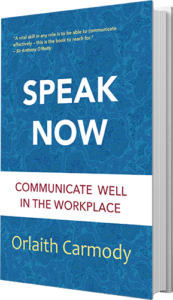Where would you really, really like to work? What company or organisation stands out to you as somewhere that could be a good place to spend large chunks of your days?
Social media influencer and entrepreneur Shaan Puri posted something recently that really caught the wind. He said “Assume you get paid $1M per year no matter what you do, but you still gotta work 40 hours a week, what would you pick to work on?” It was astonishing how many of the thousands of answers he got were around teaching kids to do things differently, or creating communities. Purpose in what we do is increasingly important for most of us. So identify a few concerns that interest you, and seem to have the kind of culture and purpose you want and check out their websites. Many organisations now have a recruitment section on their website with a notice saying that CVs will be accepted, even where they do not have specific jobs open at the moment. Internal recruiters will tell you that they like receiving good cover emails and CVs from people who have identified their organisation as one they like, and who seem to have made it their business to find out as much about the business as they can. The internal recruiters or HR people never know when a current employee is going to hand in their notice, and leave a gap to be filled, so having a few applications already in the pipeline, or a few people they are already having exploratory conversations with is useful for them. Once they get a sense that the candidate is aligned with their purpose.
Brian Murphy is Director of Employee Skilling at Microsoft, following previous high level positions in big pharma and banking. “At Microsoft there are a number of things we hire against I was sent a video to view before my first day and that was about having a growth mindset, which told me all I needed to know about the orientation and the culture in the organisation” he says. “In fact it was the only piece of content I was asked to look at, and therefore was presenting this as the most important thing. As a learning professional I was just so impressed with that positioning of this topic as we were preparing people for joining the company.” So if you are reaching out to that company you have identified as having the kind of culture and purpose you like, how should you do it?
Tough sales people used to be measured on their ability to make a cold call – a call to someone they had no previous contact with, using their best patter and persuasion to get a hearing. These days it is more likely to be a cold email, an email out of the blue, but which should be, in reality, far from cold. Start by working out who is the correct person to write to. You might find HR managers, talent managers or hiring managers listed in the ‘about us’ section of the website. Search the company on LinkedIn and many of the people who work there, and their titles, will pop up. Write a warm, friendly, but short email suggesting why you might be a good fit for their team. Refer to specific products or services they offer, places where you can contribute, so they know that you know who they are, and you are not mass emailing. Briefly touch on career achievements and qualifications, and then ask for a 15 minute chat, online or in person, so you can learn a little bit more about them. Thank them for their time, attach your CV and think of a really good subject line, something that might encourage them to open the email in the first place. Before you hit send, proof read, and proof read again. First impressions count! If you haven’t heard anything back within a week or ten days, it is perfectly acceptable to send a follow up email. People are busy, they take holidays, and things get lost in the mass of information we receive every day.
From Speak Now, Communicate Well in the Workplace.
Order your copy here

